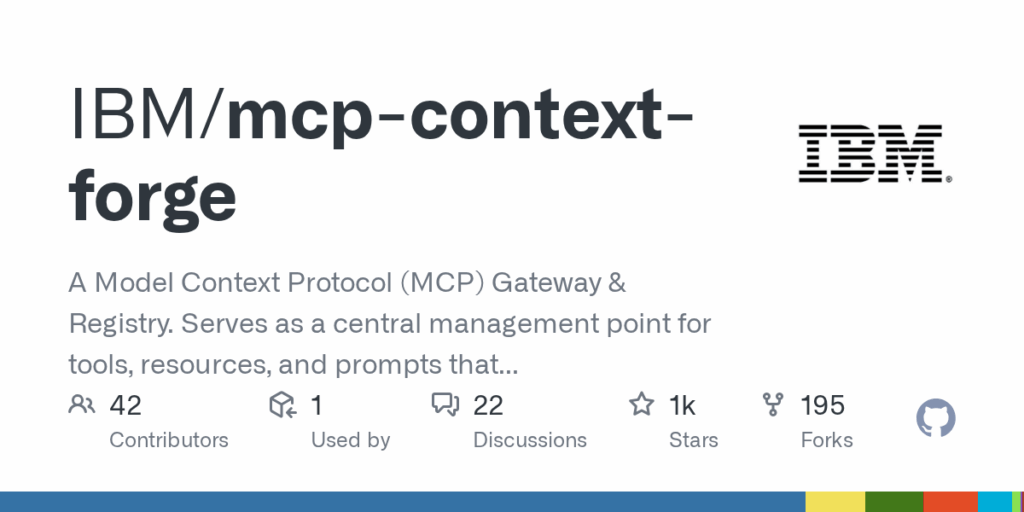mcp context forge
Basic Information
ContextForge MCP Gateway is an open source gateway, registry and proxy for the Model Context Protocol (MCP) that provides a unified endpoint in front of MCP servers and REST APIs. It is designed to federate multiple MCP and REST services, virtualize legacy APIs as MCP-compliant tools, and expose tools, prompts and resources to AI clients through a single managed interface. The project is packaged for PyPI and OCI containers and can be run locally, in containers or scaled on Kubernetes with Redis-backed federation and caching. The README highlights deployment options, a stdio wrapper for clients, an optional Admin UI, OpenTelemetry observability and extensive configuration via environment variables. The repository is provided without official IBM support and the README cautions the current release is alpha and intended for development and experimentation rather than production deployment.








